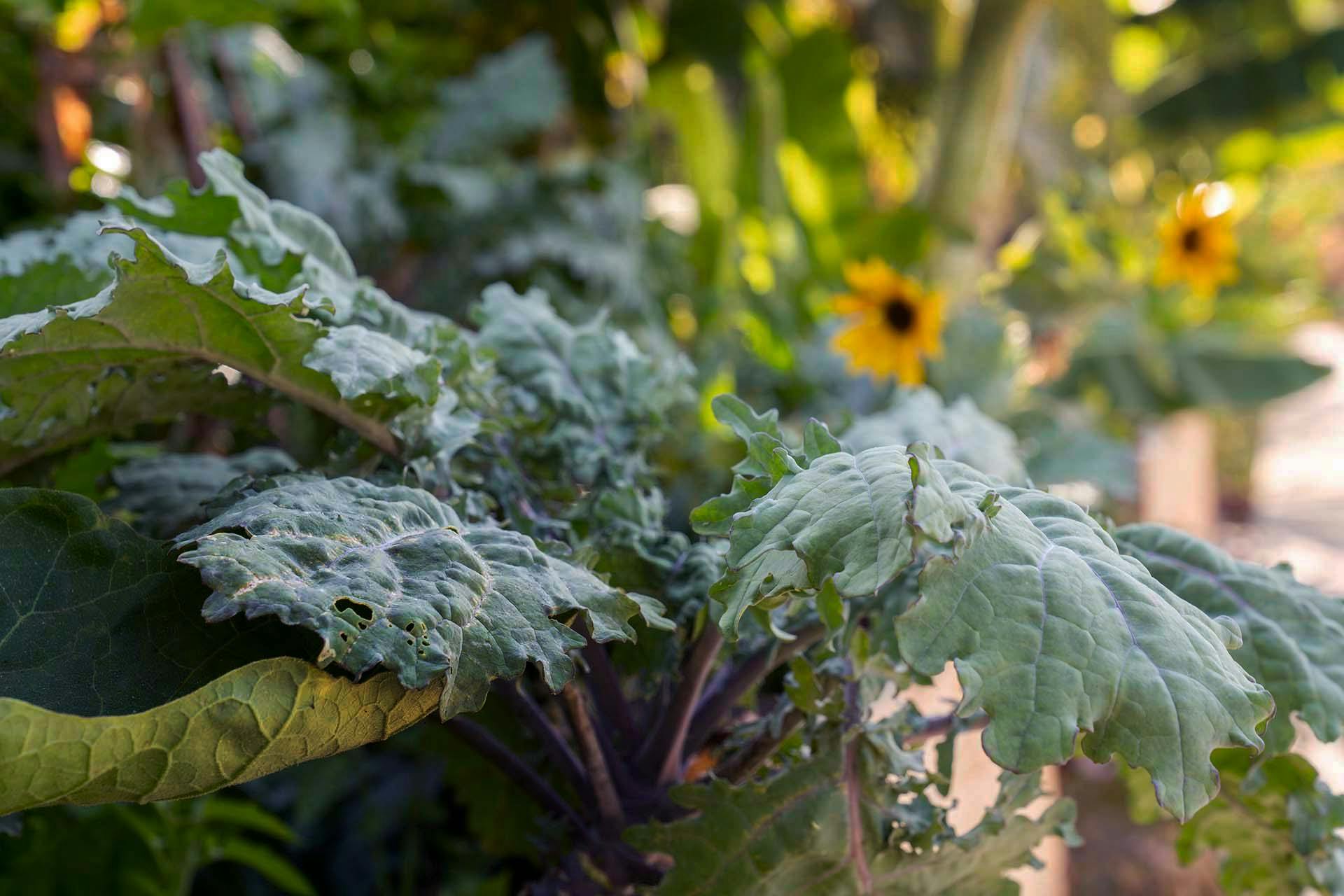Over 10,000 Pounds of Food Waste Diverted and Composted from Participating Businesses
Food that decomposes in a landfill releases methane, a greenhouse gas 86 times more potent than carbon dioxide. By composting locally, we reduce transportation associated with hauling waste to faraway processing facilities, which lowers smog-forming air pollutants and carbon dioxide emissions. Simultaneously, the application of compost builds healthy soils, increases water retention, and enhances soil carbon sequestration.
The Table to Farm program works with Environmental Charter Schools’ (ECS) three campuses, Environmental Charter Middle School Inglewood, Environmental Charter Middle School Gardena, and Environmental Charter High School, to implement community composting. These three compost facilities serve the school, community, and local restaurants interested in recycling their organic food scraps. As of 2020, TBF’s Table to Farm program and ECS established a community garden just outside of Environmental Charter Middle School Inglewood’s campus. This garden utilizes compost to grow nourishing produce for the surrounding community.
If your food service establishment is interested in participating in this composting program and is based in is based in Inglewood, Gardena or Lawndale, please contact us.
Project Highlights
